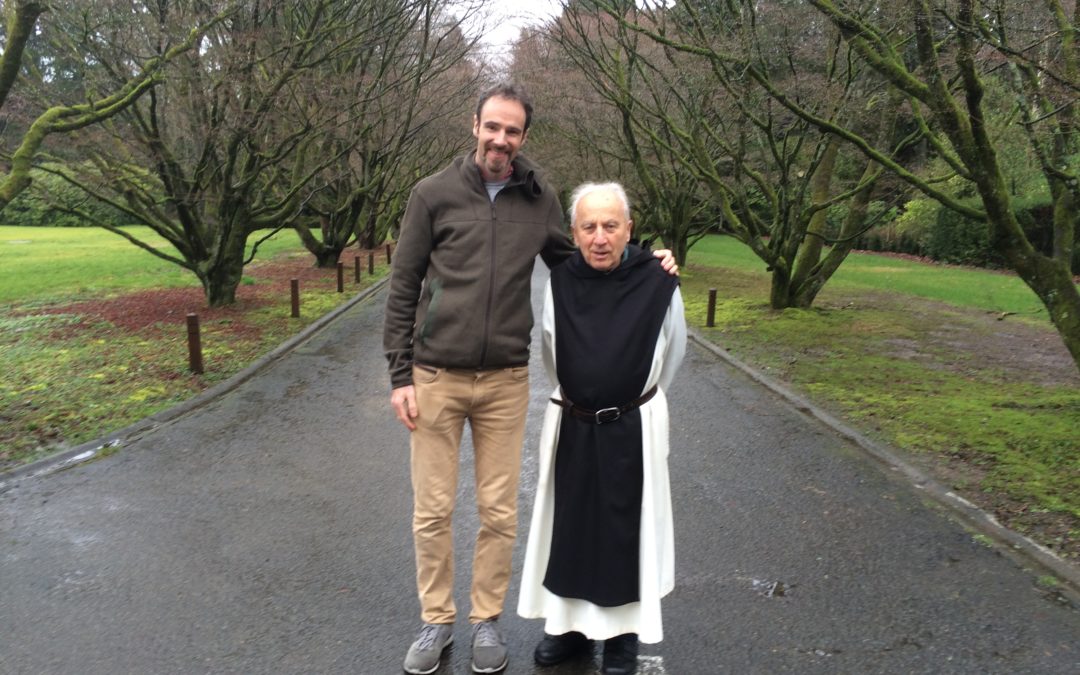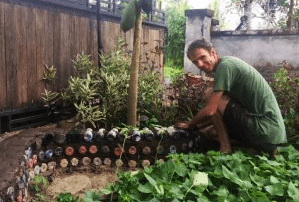This week I have journeyed to Chimay, Belgium to take a little retreat at the Abbey de Scourmont. I am so grateful. Really, this is more of an excuse to see my old friend Père Jaques. Père Jaques (90) and I go back ten years ago when I was passing by on my bike and they took me in at the monastery during a snow storm. This evening we sat down over a couple of their world famous brew. And wow, the stories. Somehow Père Jaques and I got talking about the second world war which he lived through as boy.
Père Jaques (90) and I go back ten years when I was passing by on my bike as I traveled to Berlin. He took me in at the monastery during a snow storm and I insisted I stay for a while. This evening we sat down over a couple of their world famous brew and caught up. And wow, the stories. Somehow Père Jaques and I got talking about his experiences as a boy during the second world war.
Ani Himawati and I have been watching some war movies during our time in Holland– 1917, Downfall, etc. But his stories were nothing at all like the movies. Films have some coherence to their events; a plot, a story-line. For Père Jaques the stories were just one epic– yet random– tragedy. One after the other, after the other.
His father was a doctor for the Armée Blanche– the Belgian resistance. His mother a nurse. His town was completely immersed in the German occupation in 1940’s when he was 10. He recalls a 19 year old boy who hid in an abandoned building for months to avoid being captured and recruited by the Germans. Père Jaques had the job of sneaking him food each day. But then the Germans found the boy. Before they could take him though.. he shot himself in the head.
He recalled one of his teachers, Mademoiselle Van Durmen, at his school who’s husband was a resistance leader. When he was killed by a bombardment in 1940 she became active too. Finally the Germans caught her and sent her to the concentration camps. Père Jaques thought she had died, but ten years after the war he heard she had escaped. In the camps she had written everything down in a journal. Apparently she took a vow of silence in the a nunnery and took no visitors (at least Père Jaques couldn’t arrange a meeting). But before she passed away, she published the journals and left them for people to read at her old convent.
He tells of his strict Dutch teacher who heard a shell incoming to the school and yelled in French to take cover under their desks. The next door building was destroyed but no one was hurt.
He tells me of a Canadian fighter pilot, shot down and crash landed in a field near his home. His father took him home and they hid him and tried to save him– but could not. Before he died though he gave Père Jaques his brass compass which he kept for years.
And then there was the time he was riding with a red cross motorcade and a German plane came down from the sky and machine gunned the convoy. I got the impression many people were killed. Père Jaques hid in the ditch, then he got up, and without anything better to do, started walking and walking down the road the country they had been traveling. He seemed to remember more the walk than the actual attack. He walked the whole day without stopping.
During the war, his mother died from sickness. Later his father and then his brother were captured and killed by the Germans.
“But the story’s not finished” interjected Père Jaques.. a decade later, walking through the town of Waterloo he suddenly came face to face with a memorial and photo of the 19 year old boy who had shot himself to not be captured. “There he was, right in front of me. Son memoire”. His memory.
No one will ever make a movie of Père Jaque’s stories. But hearing, remembering, how war can make tragedy normal and mundane is more chilling than anything you can seen on a screen.


